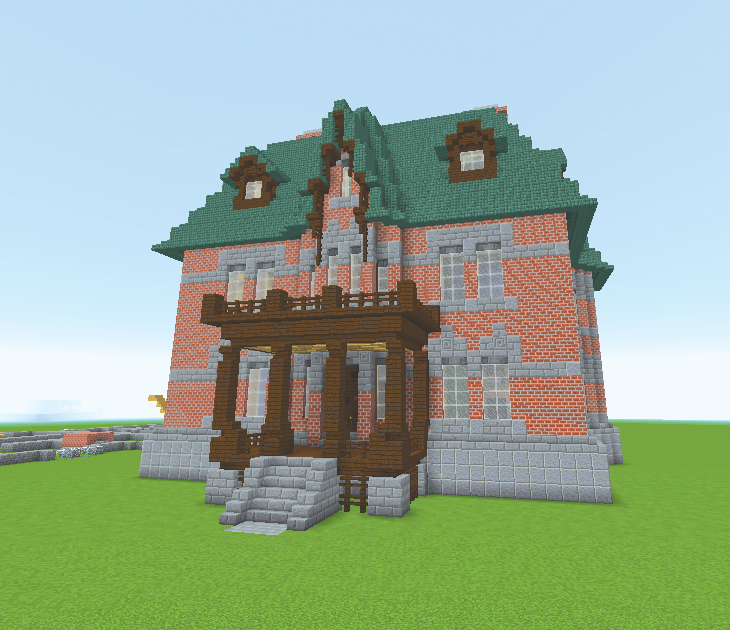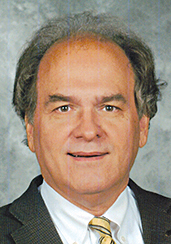How day camps are adapting to new rules
Gov. Chris Sununu recently gave the green light for summer day camps to open on Monday, June 22, and summer overnight camps to open on Sunday, June 28, stating that summer camps are an “essential” service for New Hampshire families.
Many camps have shifted to a virtual format or canceled their programs altogether. Some will move forward with their traditional camps starting on or after June 22, but with new guidelines about face coverings, social distancing, handwashing, sanitizing, health checks and pick-up and drop-off procedures, even the “traditional” summer camp experience will look a little different than what camp staff, families and campers are used to.
“We are looking at a lot of modifications or adaptations of our regular camp activities so that we can continue to meet the needs of the families while also following the CDC and governor’s guidelines,” said Lisa Bernard, executive director for the Granite YMCA Greater Londonderry branch.
A difficult decision
Rob Dionne, artistic director and CEO of The Majestic Theatre in Manchester, said making a decision about Majestic’s summer theater camp has been “an agonizing process.” He and his staff ultimately decided to offer virtual programming only.
“We tried to hang on as long as we could,” he said. “We didn’t want to cancel too far in advance because things seem to be changing daily, but looking at how the governor has been reopening things, we [came to the conclusion that] having our camps the way we normally do just wasn’t realistic anymore.”
Majestic will offer two virtual camps. One will consist of three week-long sessions for children ages five through seven, with 45-minute interactive workshops on Monday, Wednesday and Friday. The other will consist of four week-long sessions for children ages eight through 14, with one-hour interactive workshops held twice a day, Monday through Friday, exploring theater skills like acting, improv, music, choreography, character development, audition preparation and more.
The Kimball Jenkins School of Art in Concord, which traditionally holds six weeks of summer camps focused on painting, sculpting, drawing, ceramics and other artistic media, was going to start with virtual programming and consider offering in-person camps the week of July 6, but the board ultimately elected not to offer any in-person camps this summer.
“This was an incredibly difficult decision that weighed on us just about every minute of the past several months,” executive director Julianne Gadoury said. “Some of children’s best learning and joyful experiences come from summer camp. … Lasting friendships are developed. … We understand and value this. Ultimately, however, we decided that, no matter how good our [health and safety] protocols were, … there is still a risk … [and] that risk will be present in all of our lives for a long time. … For now, we decided to take a pause.”
Kimball Jenkins will have a variety of week-long virtual camps, including ones focused on theater, dance, studio arts, comic making and clay, for kids ages five through 16. Campers will have art supplies delivered to their house each week and will take part in three hour-long interactive sessions online each day providing instruction on different activities they can do with those supplies.
“For parents, this will provide some daily structure for those who are working from home or need to leave their kids at home,” Gadoury said.
The Nature of Things, a Nashua-based educational institution and child care center, is the host of three summer camps: an outdoor adventure camp called Camp Lovewell, a STEAM (science, technology, engineering, art and mathematics) camp called Brainwave and an art camp called The Painted Turtle. President Kerry Gleeson said she believes the benefits that summer camp has for children outweigh the risks associated with the coronavirus. All three camps will run in person, with some modifications.
“We … understand the importance of children being outside and making social connections, especially at a time like this,” Gleeson said. “The public health crisis is certainly serious, but the other possible impacts on childhood development, such as psychological and emotional damages, are just as critical. It is always one of our foremost goals to ensure that we are addressing the needs of the whole child, and this is true now more than ever.”
Challenger Sports, a national soccer camp program, announced that it will offer both virtual and in-person camps, but because the in-person camps are run in partnership with community centers and organizations, they will be more limited this year than in years past.
“We have our own Covid-19 plan and restrictions, but our camps are a collaborative effort, and every organization we work with has different guidelines based on its local government,” vice president David Rush said. “Some have already told us they need to cancel camp this year, and there’s some that still have furloughed [staff], so there isn’t even anyone to talk to about camp.”
As of now, in-person Challenger soccer camps are being offered in Londonderry, Weare, Windham, New Boston, Hopkinton, Pelham and other towns and cities throughout New Hampshire, but Rush said plans are changing “on a regular basis.”
“There’s still so much uncertainty at this point,” he said. “One day we get a call saying, ‘Great news — we want to run the camp,’ and the next day we get a call saying, ‘We’re going to have to cancel.’ It’s a fluid, moving situation, but we should be able to say within the next few weeks with confidence what camps we’ll be running.”
Unfortunately, for camps like Camp Allen, a day and overnight outdoor adventure camp for children and adults with disabilities, a modified or virtual camp isn’t a viable alternative.
“When Covid-19 began to appear in the news, we started to worry,” executive director Michael Constance said. “We began to craft [health and safety] policies. … As the virus progressed, I started setting barometers as to events that would lead us to cancellation. What really made the decision was the outbreaks at two facilities that serve a similar population. I created a binder of research I collected over 30 days and presented this to the board, and the decision [to cancel] was unanimous.”
Health and safety
In-person summer camps will look very different to campers and parents this year as the camps have made significant modifications and implemented numerous health and safety measures to prevent the spread of Covid-19. One of the biggest modifications is separating campers into small, isolated groups.
“Campers and staff will be divided into groups of 10 that will serve as their cohort for the summer,” said Emily O’Rourke, communications director for the Boys & Girls Clubs of Central New Hampshire, which serves the greater Concord area and Lakes Region. “We will be spreading cohorts throughout our facilities and may be using additional facilities. Interaction with others will be limited.”
The Challenger soccer camps will follow a similar model.
“Kids will be split into groups of ten, each with their own coach, and will be spread out on different sides of the field,” Rush said. “They won’t come together for opening or closing ceremonies; they won’t have lunch together; they will never interact with the other groups at camp.”
Camps that have a spacious facility or multiple facilities, like the Boys & Girls Clubs and The Merrimack Parks & Recreation Department’s Camp Naticook, are at an advantage because they can accommodate more groups of campers while keeping them at a safe distance from each other.
“We are fortunate here that we have such a large facility with a lot of buildings to operate out of,” Merrimack Parks & Recreation director Matthew Casparius said. “Some of my counterparts in other communities aren’t able to provide camp this summer because they simply don’t have the space that they would need to meet the guidelines.”
Even with smaller group sizes, camps have eliminated field trips to reduce the risk of community transmission of Covid-19, and they have modified their activities to include those that are more conducive to social distancing, like hands-on projects that campers can do independently and outdoor recreation. Camp Naticook, for example, has terminated activities like archery, playground time, contact sports and boating activities, which would involve campers being close to other campers and staff members, or sharing and touching the same equipment and surfaces.
“We’re looking at non-contact … games and nontraditional camp activities,” Casparius said. “We are still hoping to have a complement of sports and games, nature exploration, arts and crafts and drama games.”
Parents and campers will also need to familiarize themselves with long lists of new health and safety precautions. Universal guidelines require camp staff to wear face masks, wash their hands frequently and sanitize common areas and items after every use. There will be a zero-tolerance policy for campers or staff showing any symptoms of illness. Most camps have also added additional protocols of their own. Boys & Girls Clubs camps, for example, will conduct health checks at the door every day and sanitize all personal items that the campers bring with them; and Challenger soccer camps will stagger drop-off and pick-up times in 15-minute intervals to prevent large groups of parents and campers congregating in one area.
A devastating impact
For some summer camps and families seeking summer camps, the challenges created by Covid-19 are insurmountable.
“[Summer camp] is one of our most popular offerings of the year and brings in a lot of income for the theater,” Dionne said. “We’re losing a lot of money, and the longer this [pandemic] goes on, the scarier it gets, and the harder it gets just to maintain the bare essential [business costs].”
LetGoYourMind, a STEM program that planned to host camps in Amherst, Bedford, Concord, Londonderry, Manchester, Windham, Salem, Nashua, Pelham and other towns and cities throughout New Hampshire, had more than 700 families registered before it decided to cancel its traditional camps and go the virtual route. According to owner Jim Harvey, the cancellation has resulted in the program losing 90 percent of its revenue and put the program in a very difficult position:
“To get [the camp] up and running, throughout the year we … budget funds for insurance, rentals and staff … [and] purchasing new Legos, robots, computers, software and other such equipment,” Harvey said. “This is all paid for in advance. … Thank goodness we were able to secure a SBA [Small Business Association] loan to return the funds to the [registered] families.”
Most camps offering virtual programs as an alternative to their traditional summer camps are doing it not for the money — the mitigation of financial loss that the virtual programs provide is negligible — but as a way to stay connected with campers and families.
“We’re still looking at a 75 to 85 percent loss of income, even with the virtual programs, so it’s not like money is what’s driving us.” Dionne said. “This is a service to our families. Our No. 1 goal right now is making sure kids still have an opportunity to do music and theater this summer.”
In-person camps are suffering a significant loss of revenue as well, since social distancing restrictions have made it harder for them to accommodate their usual number of campers.
“Due to space limitations and increased staff-to-child ratio, we do not have as many openings as usual,” O’Rourke said. “Having fewer campers definitely impacts the bottom line and, for one thing means we can’t hire as many part-time staff as we usually do.”
With camps like the Boys & Girls Clubs and YMCA camps, which are primarily used as a means of summer-long child care, the space limitations affect not only the camp, but the families seeking child care, as well.
“All our camps currently are on waitlists,” O’Rourke said. “This makes it difficult for caregivers who need to get back to work, as their options may be more limited now.”
“We will be functioning at a smaller capacity because of having to split the campers into groups,” Bernard added. “We are attempting to get creative by looking for offsite locations and other spaces so that we are able to serve as many kids as we can.”
Some camp officials report that families might not yet feel comfortable sending their children to camp.
“Since the pandemic hit, people have been more cautious, and rightly so,” Rush said, “We’ve had very few new registrations since then.”
Pre-Covid-19, Challenger Sports averaged around 60,000 campers throughout the U.S. every summer, and around 2,500 in New Hampshire. This year, the program is looking at around 10,000 campers nationwide, with only 300 registered in New Hampshire so far.
“You don’t need to be a wizard with a calculator to see … that [Covid-19] had decimated us,” Rush said. “We’ve been able to weather [the financial loss] up until now because we received government aid, but the harsh reality is, that money is about the run out, and we will have to start borrowing money from the banks. It will take us, and every other camp company, two to three years to recover, because we aren’t making money this year, and next year we’ll be paying down our debt.”
Casparius noted that not only will Camp Naticook have fewer campers this summer but it will also need to hire and pay more staff since the campers will be divided into numerous small groups.
“The camp will probably lose money this summer,” he said.
Camp Naticook’s motivation for hosting summer camp this year is the same as that of The Majestic Theatre: to provide a service for campers and families.
“We are doing it because we know that families do need child care in order to go back to work themselves and kids need a sense of normalcy throughout all of this,” Casparius said. “They need to see their friends after being cooped up at home for the last few months, which they can only get at camp.”
Many camp directors said that if there is a silver lining to be found within the crippling impact Covid-19 has had on the summer camp business it’s the encouragement felt from the outpouring of support they have received from the community.
“We got a big reminder of how important camp is in people’s lives,” Constance said, “The letters and calls we have received have moved me to tears. Some families have even donated the tuition they paid to insure that we can continue what we do. I have always talked about camp being a family, and this situation has certainly reminded me of this fact.”
Photo courtesy of Camp Lovewell.










